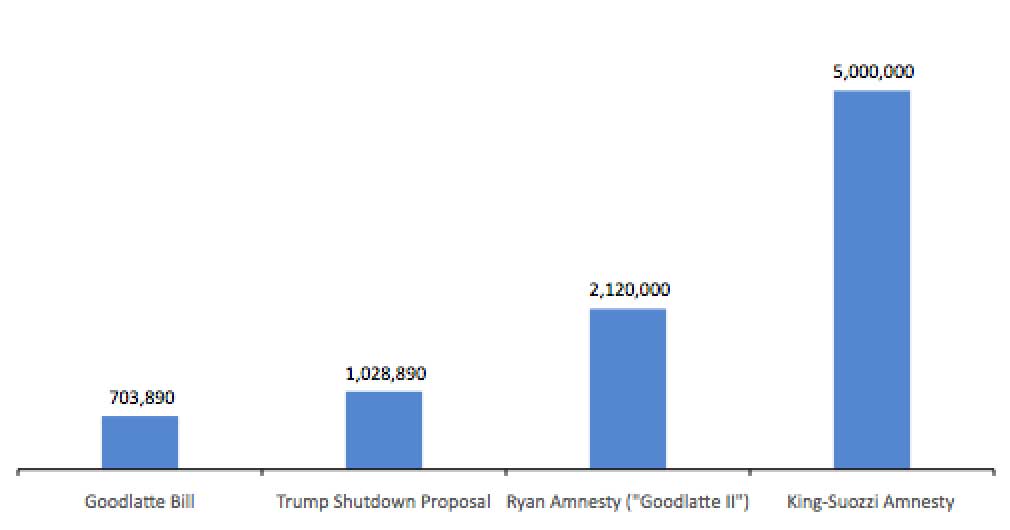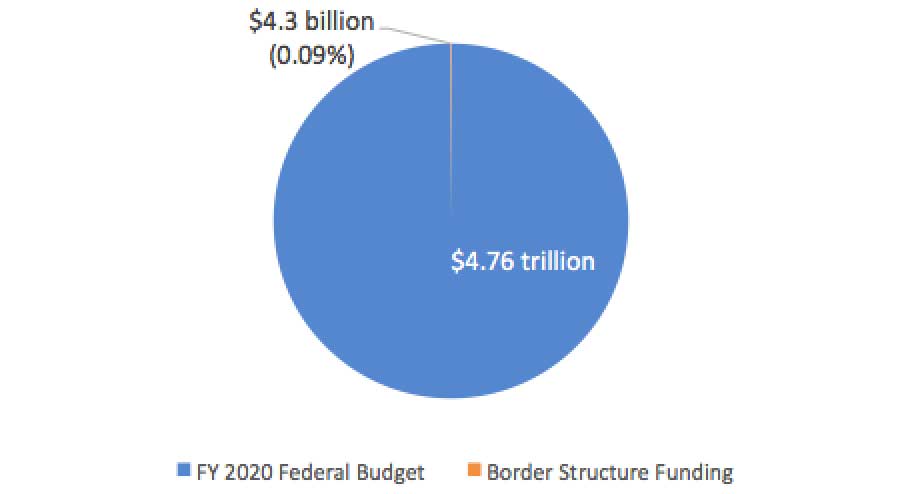Reps. Peter King (R-N.Y.; NumbersUSA career immigration score "C") and Tom Suozzi (D-N.Y.; NumbersUSA career immigration score "F-") have been pumping out press releases and op-eds in support of their forthcoming legislation, which, like past efforts from others, will once again propose to grant amnesty to millions of aliens illegally in the United States. (See, e.g., here, here, here, and here.)
They proudly proclaim its bipartisan nature because, well, obviously they're each from a different party, and under such circumstances, isn't that pretty much the definition of "bipartisan"? Of course, that doesn't mean that the legislation's any good, but "bipartisan" is such a fine word to use in these divided times.
It's going to be "Bold". It's also going to be a "Grand Compromise". One supposes that the capital letters are used to ensure that it's not mistaken for the typical, run-of-the-mill, "new-and-improved-but-not-really" kind of product we often see from slick manufacturers and pols. Except that it is.
There isn't any language in their legislation yet, because there isn't any legislation; all we have so far are the representatives' own words to tell us that it's more of the same; a kind of Gang of Two version of the infamous (and failed) Gang of Eight amnesty. Consider:
What They Say. It will benefit up to five million illegal aliens; an amorphously described group of "Dreamers", plus the combined hundreds of thousands of Temporary Protected Status (TPS) recipients from various nations, many of whom were illegally in the United States before being granted TPS, and whose programs were not renewed by the Trump administration. On top of all of that, family members would also benefit.
What We Know. First, the numbers dwarf many of the other recent legislative amnesty proposals, as is evident from Figure 1.
Figure 1. Total Estimated Amnesty Beneficiaries by Bill/Proposal |
 |
|
Sources: Center for Migration Studies statistical and demographic profile of TPS recipients, USCIS DACA population data, CIS analysis. |
Second, if history is any lesson, the five million is an undercount. In 1986, the last time there was a "grand compromise" on immigration that included an amnesty, officials seriously underestimated the number of aliens who would benefit. Such an undercount is likely with these figures, too, because they don't really have any good way to estimate the number of family members (real or manufactured to aid otherwise-ineligible aliens) who will come out of the woodwork to gain the benefits being given along with the principle amnesty applicant.
Third, politicians are infamous for failing to calculate the massive amount of successful fraudulent claims that get through the system because of the broad language usually crafted to allow applicants to qualify — plus a confidentiality clause that effectively precludes the kind of oversight needed to weed out fraud. This was one of the failings of the 1986 amnesty, and it would have been in the Gang of Eight bill because of the legislative language used, had that bill not failed. It's almost certain to be a failing in this measure, too, because proponents of amnesties seem determined to repeat the mistakes of the past when they craft their bills.
What They Say. "With an estimated $10 billion in revenue from five million applicants, the government would direct $4.3 billion toward physical structures on the Southern border, $4.3 billion to nonphysical border reinforcement and aid to Central America and the other $1.4 billion to the administration of the citizenship program."
What We Know. The amount of money actually generated in an amnesty may not be anywhere near the figures claimed; it's absurd to calculate income based on a one-to-one ratio between fees collected and applicants. That has never been the case. Virtually every immigration benefit program administered by the federal government (including the past amnesty) contains excessively generous provisions allowing fee waivers for those who can't afford them — even as such people are supposed to be screened out as "public charges" — and officials are ever willing to grant the waivers and overlook applicability of the public charge grounds of inadmissibility (or waive those, too).
The amounts to be apportioned to border control are also a drop in the ocean compared to overall federal budget figures, as Figure 2 shows.
Figure 2. The King-Suozzi Amnesty Bill Would Allot less than 0.1% of the Total Federal Budget to Border Structures |
 |
|
Source: Estimated federal budget outlays FY 2020. |
This leads us to ask why it wouldn't simply be smarter to reapportion some of the already collected taxes for effective immigration controls. Keep in mind that the money this bill would speculatively generate significantly undercounts what it will cost the federal, state, and local governments in other areas, such as education, social safety nets, health, and crime. Where will the money be generated to cover those costs? From taxpayers' pockets.
In other words, no amnesty generates nearly enough money to match what is spent in the near or long terms. Better by far to simply use the money already coming into federal coffers in different ways in order to bolster immigration and border control, than to add to future social welfare burdens.
What They Say. "'The Republicans have a legitimate concern that the last time the country did a program to legalize folks they never did anything to stop the further migration,' Suozzi said in an interview. 'You have to try and balance the two.'"
What We Know. Suozzi is absolutely right. The 1986 amnesty was granted up front, and the promised fixes to enforcement that were supposed to follow closely afterward never came. That is one of the reasons we now confront a swelling population of 11 or 12 or even 13 million aliens residing and working illegally in our country. The failed Gang of Eight bill went down the same path.
Suozzi's acknowledgement is all the more ironic, then, because the bill these two representatives want to put forward would do the same thing: Any fixes to the border, physical or otherwise, and all of the other promises, only come to pass after money is collected from the millions of aliens who apply (minus, of course, the amounts not collected due to fee waivers).
Keep in mind, also, that there is nothing to stop Congress from changing its mind on how that money is to be spent once collected. In the meantime, though, the amnesty will have come to pass, and for lack of effective immigration control at the border or in the interior, hundreds of thousands more will pour through in hopes of either defrauding the government to gain their own amnesty card, or to wait patiently for the re-set button to be pushed for Amnesty, Round 3.
In other words, this Bold Grand Compromise is almost certain to be another J. Wellington Wimpy deal: Give me amnesty today and I'll gladly pay you for it on Tuesday.
